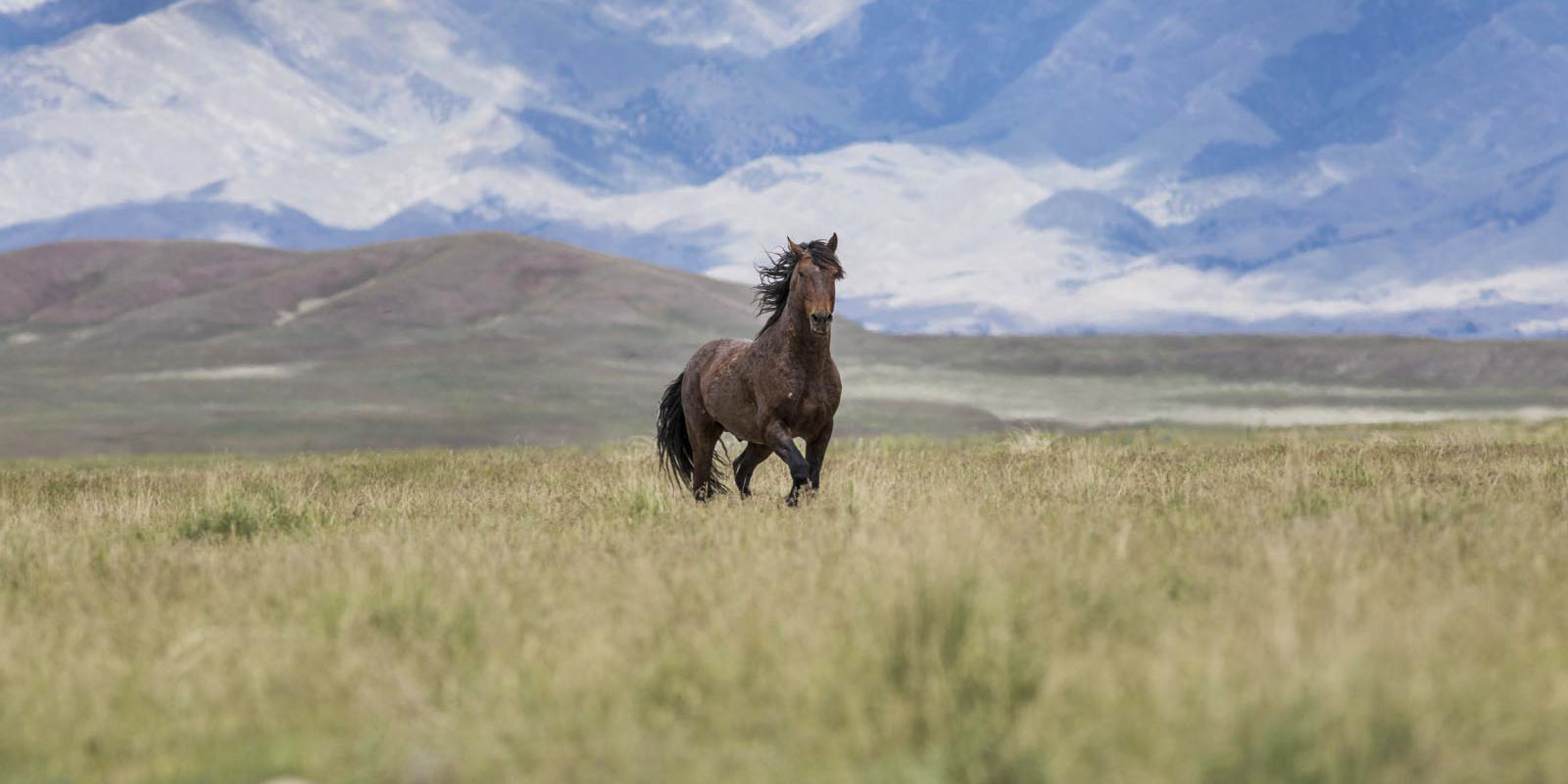RBC | Earlier this summer Congress approved an appropriations bill which would impact the way wild horse and burro populations are managed nationwide. Included in the bill was the Stewart Amendment, proposed by Representative Chris Stewart (R-Utah). The amendment allowed for the humane euthanasia of excess wild horses in an attempt to manage the growing population.
Late last week it was announced that the bi-partisan Titus Amendment would offered on the House floor next week. The Titus Amendment would strip the current Stewart Amendment and prevent the Bureau of Land Management from utilizing euthanasia on excess wild horses. The amendment is co-sponsored by Congresswoman Dina Titus (D-Nev.), Congressman Peter King (R-N.Y.), Congressman Carlos Curbelo (R-Fla.) and Colorado Congressman Jared Polis (D-Colo.).
In a press release regarding the amendment Polis said, “We must protect our wild horses, a majestic symbol of our American heritage. Taxpayers should no longer foot the bill for the senseless, horrific slaughter of wild horses. Our public lands belong to the wild horses, just as they belong to all Americans.”
Since the passing of the Wild and Free Roaming Horse and Burro Act in 1971 it has been illegal to euthanize any wild horses or burros and none have actually been euthanized since the passing of the Stewart Amendment.
The BLM estimates the appropriate management level on the range to be 26,500 horses, however, there are now more than 73,000 wild horses on the range.
Locally Rio Blanco County is home to two wild horse herds: The Piceance/East Douglas Herd Management Area (HMA) and the West Douglas Herd. The Piceance/East Douglas HMA has a stated appropriate management level of 135-235 horses and a current population estimate of 480 horses, double the maximum carrying capacity.
The West Douglas Herd is located outside any designated Horse Management Area. When the Piceance/East Douglas HMA was established in 1980 it was determined that the West Douglas area does not contain a sustainable ecosystem for the horses and therefore should not hold any. It is currently estimated that there are more than 254 horses in the area.
Because wild horse herd populations double every four years, population control is considered vital to the health of the horses and the range. During the discussion of his amendment Representative Stewart stated, “The bottom line is this: these horses are starving. They’re destroying the range. They’re crowding out the deer and the elk because we cannot manage them.”
White River and Douglas Creek Conservation District Director Callie Hendrickson believes that if major management changes are not implemented there could be more than 1,500 horses in the county by 2021.
The Titus Amendment will now be reviewed by the House Rules Committee, the Department of the Interior, Environment and related agencies.


